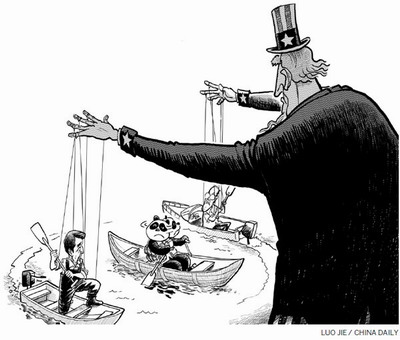
What America Should Hear in US-China Dialogue
First, China does not want to challenge America’s position as a superpower. The current generation and the future generations in China have no interest in global hegemony. If global hegemony were a real concept — if the world would always have a country playing this role, starting from the period of the British empire to the end of time — then we would rather have America in the position. There is a price to pay for being a global hegemony, and America deserves all the consequences.
Second, it is understandable that America is defensive against China and worried about its hegemony because of China’s growth. However, the Chinese have the same worries about America curbing China’s rise. The reality is, America’s ability to use resource allocation to curb China is much greater than China’s ability to challenge it. If the two nations were to peacefully coexist, it is good to remember not to force China into a corner while reminding [China] not to threaten the U.S.
Third, America has as its logic a rebalancing of power in the Asia-Pacific, but its actions in the South Sea have already surpassed mere “balancing.” It has made China feel threatened more than ever before. It is not acceptable for America to pressure and control China this way. It is the long-term hope of Chinese society, as well as the long-term plan of the Chinese government that America controls itself or be forced to control itself. America cannot treat the South Sea, which is right near China, like the Caribbean Sea in its backyard. The Chinese are determined in this strategic goal.
Fourth, the blatant actions of the Americans have shown the Chinese time and again that our military strength is weak. China needs to work hard on developing a strategic ability that is powerful and threatening. Harry B. Harris Jr.’s Pacific fleets have no reason to be so disrespectful toward China. In a real war, they would just be targets in the sea. The disrespect from the Pacific fleets is a snapshot of American society’s disrespect toward the Chinese military. China already has the economic and technical foundation for bridging the gap between Chinese and American military power, and China should accelerate its efforts.
Fifth, the sense of insecurity America has brought to the Chinese in recent years has covered all areas, including the increase in American support for the anti-systemic forces in Chinese society. If the average Chinese was little interested in America’s mention of human rights before, more and more Chinese are tired of the topic now. We believe that “human rights” is merely a [discursive] tool in America’s game with China.
Sixth, China used to have an appreciation for America; even now, everything modern in America still attracts us. But America’s support for Japan, its abetting of the Philippines, its concentration of military power in the South Sea and Obama’s abnormal fawning during his Vietnam visit have all reshaped the Chinese portrait of America. More and more people are having an unfavorable view of China-U.S. relations, which is actually mental preparation for its declining state.
Seventh, while the Chinese hope for a healthy China-U.S. relationship for the most part — especially in avoiding any military conflict — the constant flying of U.S. spy planes close to the Chinese coast and protesting U.S. fleets near the Chinese islands is America bullying us at our door. We strongly hope the Chinese military can develop the power to make American fleets be afraid to get close, and firmly use this power too.
Eighth, America should give China more room to rise and more respect. If so, America would receive more cooperation from China on global issues. If America were to curb China, however, then the Chinese would have no qualms with America’s schemes at its borders. We do not think of our borders as part of our sphere of influence, but we will not allow all of East Asia to become America’s “strategic base.”
We believe these views are highly representative of most people in Chinese society. Some of these views are driven by emotion and may not be permanent, and it is not certain to what degree they would become Chinese policy. One thing is without question, however: The more aggressive American policy is toward China, the more likely the above views would become Chinese policy. In that case, China would not be comfortable, nor would America.
